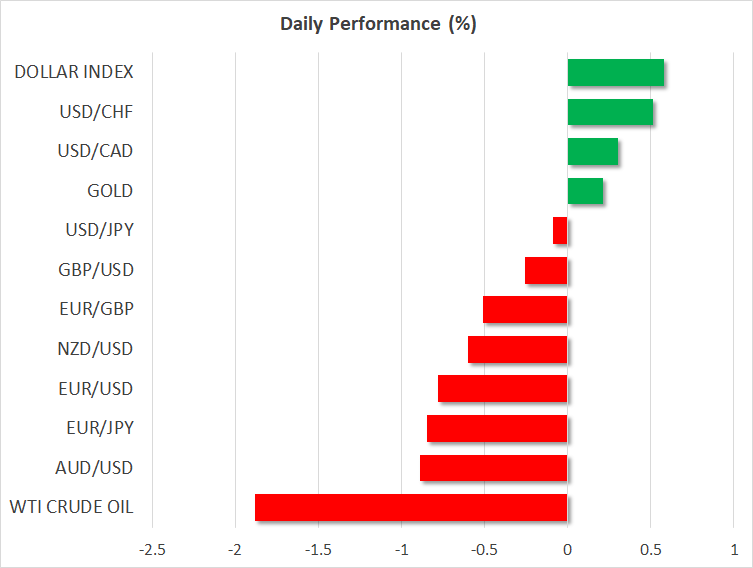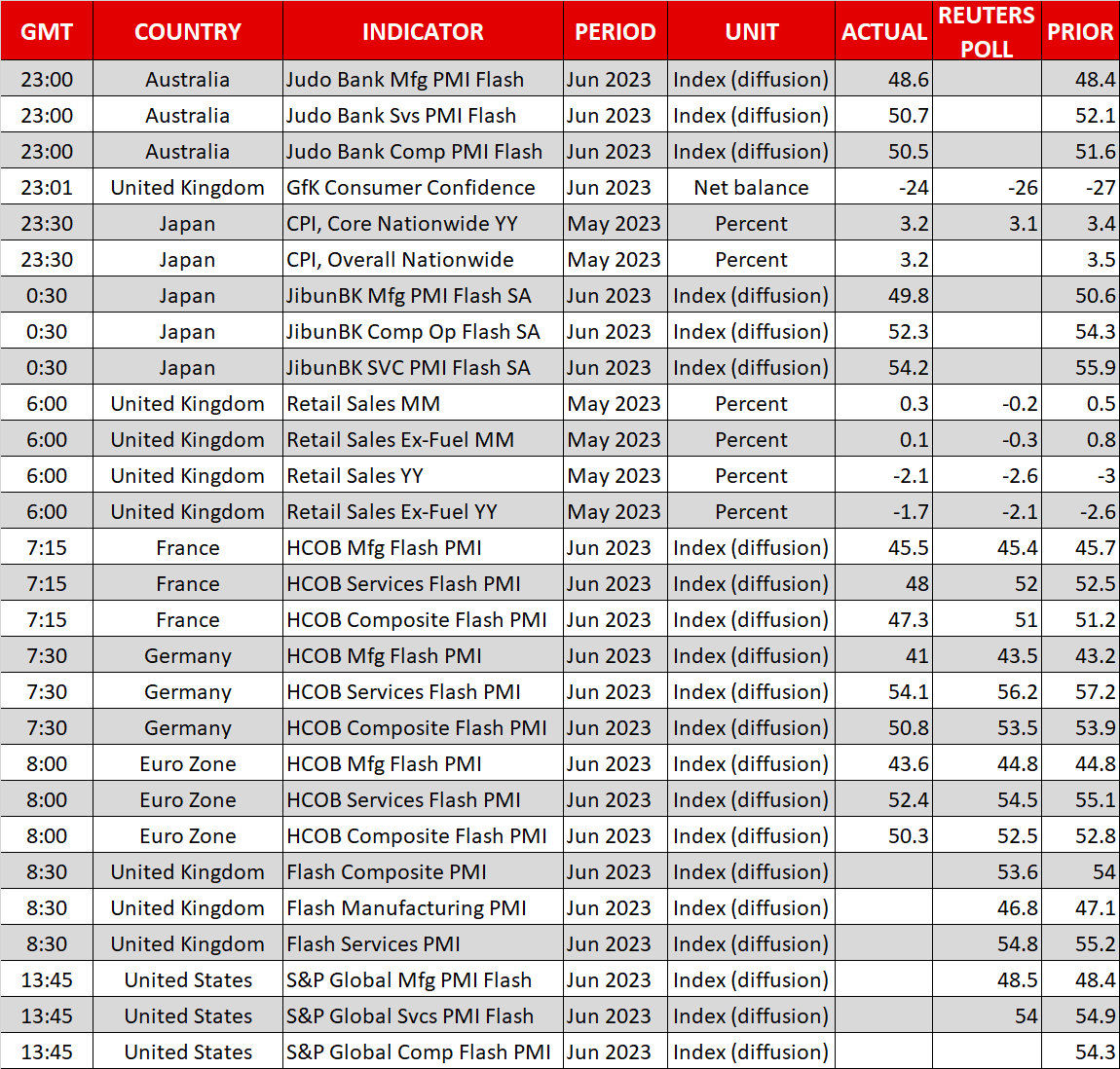- Recession fears heightened after BoE surprises with 50-bps hike, Eurozone PMIs disappoint
- Hawkish Fed commentary further underscores need for more central bank tightening
- Dollar advances as pound and euro slide, Wall Street heads for rare weekly loss

Recession gloom returns as growth outlook dims
The Federal Reserve and ECB set the tone more than a week ago, but it’s taken another round of hawkish central bank rhetoric, culminating with the Bank of England’s larger-than-expected rate hike, for markets to finally heed the message that the era of restrictive policy is nowhere near the end.
The Bank of England’s decision to accelerate its pace of rate increases on Thursday just as many other central banks are skipping some meetings appears to have raised the alarm beyond UK markets, serving as the strongest reminder yet that the fight against high inflation is far from over.
Rate rises from the Swiss National Bank as well as Norway’s and Turkey’s central banks on Thursday underlined the tightening trend, while Fed Chair Powell not deviating from the script as he addressed lawmakers to flag two additional hikes further rattled markets.
The significance of this has reverberated across financial markets globally and potentially, still has some way to go before it fully plays out. Up until now, the upside surprises in economic data kept risk assets propped up even as borrowing costs jumped higher.
But the cracks in the major economies in America and Europe are becoming more visible. Manufacturing activity in the euro area contracted at the fastest pace since May 2020 according to flash PMI estimates for June and overall activity was almost flat. Economic momentum is holding up better in the UK, with retail sales unexpectedly rising in May, but with markets predicting that the Bank of England will have to hike rates to at least 6%, a recession seems inevitable.
Dollar restores its shine, euro slumps, pound down too
The darkening picture revived the US dollar’s safe-haven appeal this week, pushing its index against a basket of currencies to a more than one-week high.
The greenback is once again enjoying the combination of haven demand and a hawkish Fed, backed by a relatively stronger economy among the advanced nations. In contrast, question marks are growing about how much longer businesses and consumers in the UK and Eurozone will be able to withstand higher rates.
Long-dated yields in the UK actually fell after the Bank of England’s 50-bps hike as investors turned more pessimistic about the country’s growth prospects. Eurozone yields have followed suit today, slumping on the back of the dismal PMI readings. The yield on 10-year US Treasuries on the other hand has held near its recent peaks.
Unsurprisingly, the euro is taking quite a beating today, plunging below $1.09. The Australian and New Zealand dollars are also underperforming, but expectations of several more rate hikes from the BoE are capping the pound’s losses.
The yen and Swiss franc, meanwhile, are enjoying some safe-haven flows too. Japan’s core CPI rate fell less than forecast in May, slightly boosting the odds of a policy tweak by the Bank of Japan in July, although Japan’s 10-year yield has now reversed earlier gains.
US stocks have a bad week but outperform globally
In equity markets, all regions are headed for weekly losses, led by Asian stocks. With China’s economy stuttering and interest rates continuing to go up in the G7, optimism is in short supply in Asia and the gloom appears to have caught up with Japanese investors too this week.
On Wall Street, the S&P 500 is on track for its first weekly losing streak since mid-May, while the Nasdaq’s last weekly loss goes back even further to late April. US futures point to further modest declines for Friday, but for now, this is just a healthy correction and there is little to suggest that the US bull market is faltering.
Nevertheless, the risk-off sentiment weighed on commodities, dragging oil futures closer to their 2023 lows set in March. However, gold prices managed to find some support around $1,910/oz and managed to edge higher after a brutal week.
